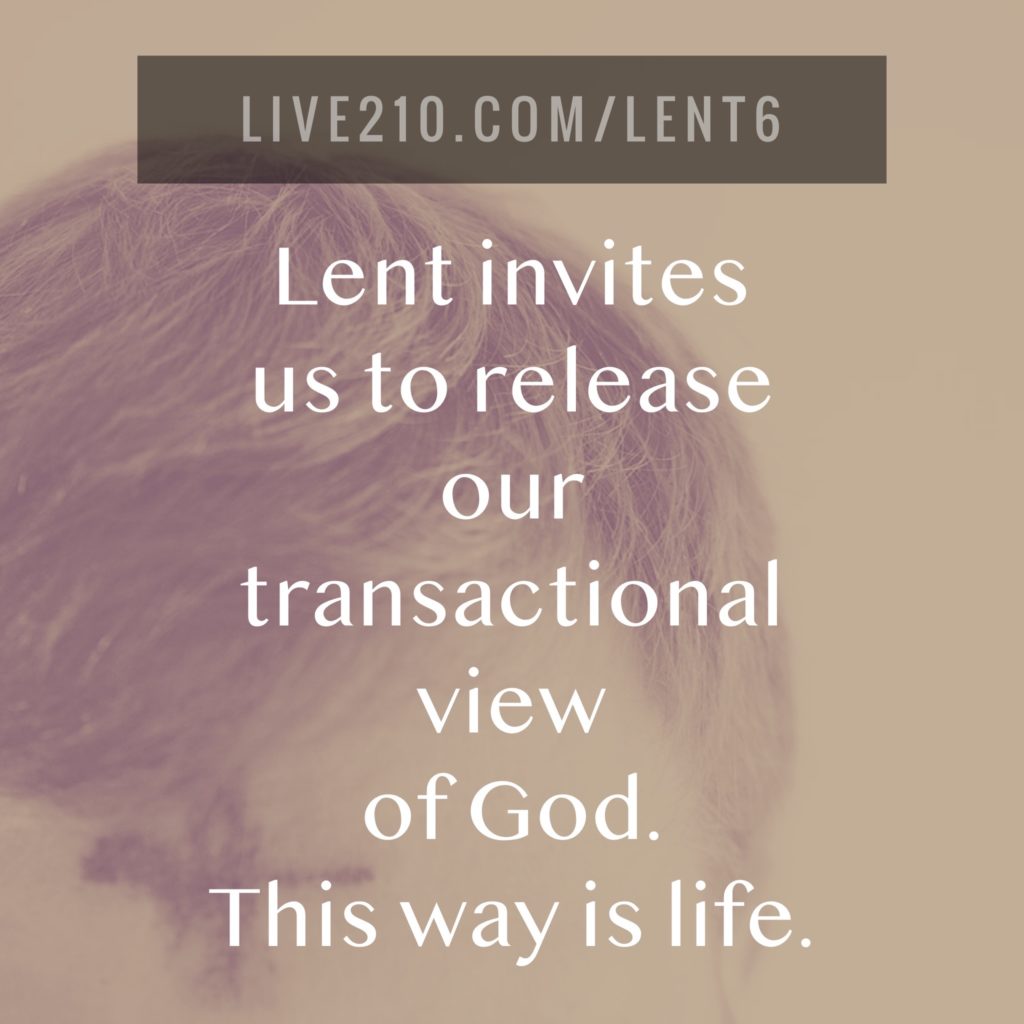6 min. to read.
Here’s my 6th installment of Lenten reflections. Matthew 17:14-21 is the scripture today. This is a passage about prayer and faith, and it is, quite honestly, a strange and frustrating passage for me.
A man brought his son to Jesus for healing, but Jesus was not available. The disciples tried to heal him, but weren’t successful. Jesus showed up and heard all of this. His words to the disciples seem frustrated and condescending. Then he heals the boy. Later the disciples asked why they had not been able to do what Jesus did. His response feels (at least with the layers of interpretive baggage I have) impossible, even condemning.
Jesus words (in the NRSV): “Then the disciples came to Jesus privately and said, “Why could we not cast it out?” He said to them, “Because of your little faith. For truly I tell you, if you have faith the size of a mustard seed, you will say to this mountain, ‘Move from here to there,’ and it will move; and nothing will be impossible for you.”
This makes faith sound like magical power, the sort of thing you can accumulate and spend on mighty feats. Certainly there are amazing and miraculous things that happen in scripture on account of faith, but it doesn’t seem to be the case that life usually works this way. People with great faith pray and terrible things still happen. I’ve seen desperate and deeply devout people pray for vital, urgent needs and nothing happened. I’ve watched good people give up their religious identity because they finally decided that either they must not have enough faith for God to care about, or perhaps the lack of response means there’s no one listening.
I’m a life-long Christian. I’ve heard all the sermons and explanations. I’ve read miles of theology. I’ve studied for decades. I have no good answer to this dilemma.

On the one hand, I have a hard time accepting this is how faith and prayer work. My experience suggests that God rarely intervenes, and certainly not with the consistency necessary to construct a precise theology of faith and prayer. On the other hand, I have a few weird experiences that truly seem miraculous. I know many, many people with even weirder stories than mine, including a couple people who seem to have experienced miraculous healing.
On the one hand, my belief that God is ultimately love leads me to question any system that suggests God would refuse to do an essential and loving thing because the people asking didn’t ask properly or with the right amount of gumption. On the other hand, my belief that God is ultimately love leads me to question any kind of theology that proposes God is unable or unwilling to intervene in the world. Certainly scripture suggests otherwise.
On the one hand, I am a child of the post-enlightenment scientific age who believes reality functions through cause-and-effect. Sometimes we pray for things that would break the universe, or at least have catastrophic unintended consequences. On the other hand, I recognize that all of our accumulated knowledge leads to an educated arrogance. To make claims like “miracles can’t happen,” or “God can’t intervene in the world,” are expressions of a worldview rather than a verifiable and ultimate statement about reality. Yes, we know much the ancients didn’t know, but our knowledge is like a set of binoculars. We can see much farther than they could in certain directions, but our ability to see things not in the “line of sight” of science is obscured. To think our scientific vision sees perfectly is foolishness.
So passages like this leave me stranded between these beliefs and data points. Although I wonder if urgent attempts to solve this dilemma are just an attempt to retreat into certainty. If I can know for certain that God doesn’t intervene in miraculous ways, then I can give up that entire endeavor and focus on contemplative spirituality. If I can know for certain that praying for Divine intervention works if you do it the right way then I’d better set my focus on learning how to do that. But spirituality isn’t ultimately about accomplishing, and my drive to be certain so that I can feel safe is the very thing that leaves me operating from fear.
As I reflect on this passage and my own bumpy journey around faith and prayer, it occurs to me that perhaps the invitation of the Spirit is to let go of transactional faith. Here’s what I mean. When I interpret faith as a unit of measurement (i.e. “Do I have enough? Do I not have enough? Do they have more than I do?”) I’m living in a kind of spiritual marketplace. Casting Out Demons? Ah, that’s 200 Faith Units. Can’t afford that. But I do have enough for Getting A Good Parking Space At The Grocery Store. I could pray that prayer and still have enough for two generic “Be With Someone” prayers. Those take practically no faith at all! Absurd, right?
I reject that model of spirituality. The primary Greek word translated “faith” in the New Testament is πιστις and it can equally be translated as trust. Trust is a relational word, and loving relationships are not transactional. Trust grows through time spent together. In the same way, trust wanes over time the more distance there is between people. Instead of thinking of God transactionally, we’re invited to think of God relationally. The way that relationships grow is through time spent. They grow over the long haul. They strengthen by going through difficult experiences. They mature over the seasons. One of the most important factors in developing a deeply trusting relationship is simply the commitment to stay present over time.
In Lent we think about letting go or giving up things that are impeding our spiritual growth. Perhaps one of the biggest enemies of deepening faith is our simplistic transactional formulas. Could we give those up? This will be hard to do, because we are so deeply enculturated to the idea that everything is transactional. We like programs, formulas, and steps. We prefer our theology when it’s systematic. With a transaction we know where we stand. Transactions are clear and certain. Letting go of this foundational expectation may be the “mountain” we need to throw into the sea.
Perhaps we are being invited to stay, to sit, to be present, so that over the long haul, trust will grow. If that’s the case, then it’s OK if, in this moment, we have a hard time accepting Jesus’ words about faith and mountains. We don’t have to pretend. Instead, stay on the journey. In the way you understand, stay close to Jesus. Invite the Spirit to lead you into deeper trust.
Lent invites us to release our transactional view of God. This way is life.
